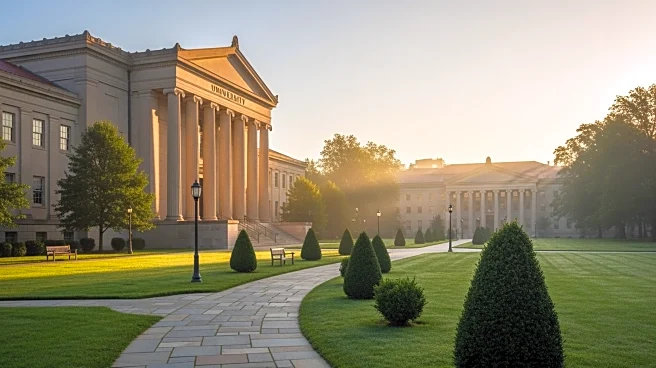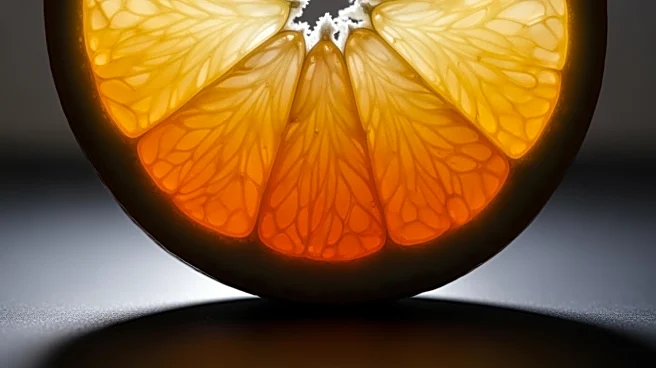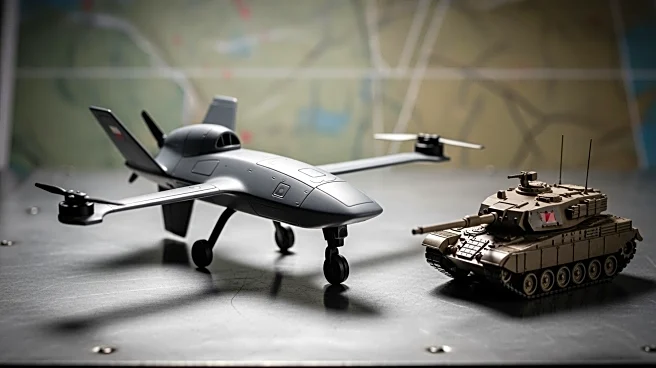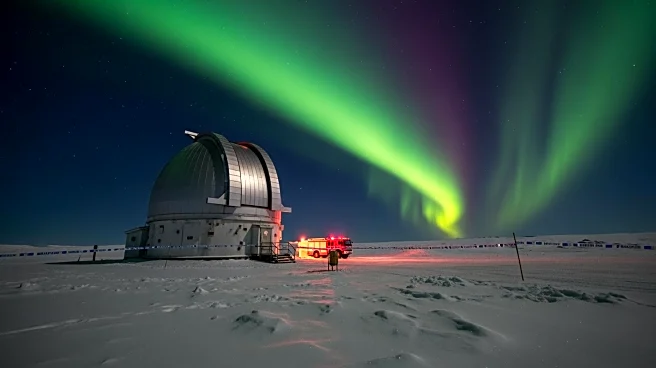What's Happening?
Russia is set to revive its Soviet-era Intervision song contest, an alternative to Eurovision, starting in Moscow. The event will feature performers from 23 countries, including members of the BRICS bloc such as China, India, Brazil, and South Africa, as well as post-Soviet allies like Belarus. The contest aims to promote 'traditional values' and patriotic ballads, contrasting with Eurovision's flamboyant style. Russia was banned from Eurovision in 2022 following its invasion of Ukraine, prompting President Vladimir Putin to sign a decree reviving Intervision. The event will be hosted by Chinese showman Lay and Indian actor Stefy Patel, with Russia represented by Shaman, a singer known for his pro-war stance.
Why It's Important?
The revival of Intervision signifies Russia's attempt to assert cultural influence and promote its values on a global stage, especially after being excluded from Eurovision. This move could strengthen ties with allied countries and showcase Russia's cultural traditions. The contest also reflects Russia's conservative shift under President Putin, emphasizing traditional values over the more liberal themes often celebrated in Eurovision. The event could impact international perceptions of Russia and its cultural diplomacy, potentially influencing geopolitical alliances and cultural exchanges.
What's Next?
The success of Intervision could lead to its establishment as a regular cultural event, potentially rivaling Eurovision in popularity among participating countries. Russia may continue to leverage cultural events to bolster its international image and strengthen alliances. Observers will watch for reactions from Western countries and Eurovision organizers, as well as the reception of Intervision by audiences in Russia and abroad.
Beyond the Headlines
Intervision's revival highlights the cultural divide between Russia and Western countries, with implications for global cultural diplomacy. The contest may serve as a platform for Russia to promote its political narratives and traditional values, influencing cultural perceptions and soft power dynamics. The event could also spark discussions on the role of cultural events in international relations and the impact of political tensions on cultural exchanges.









